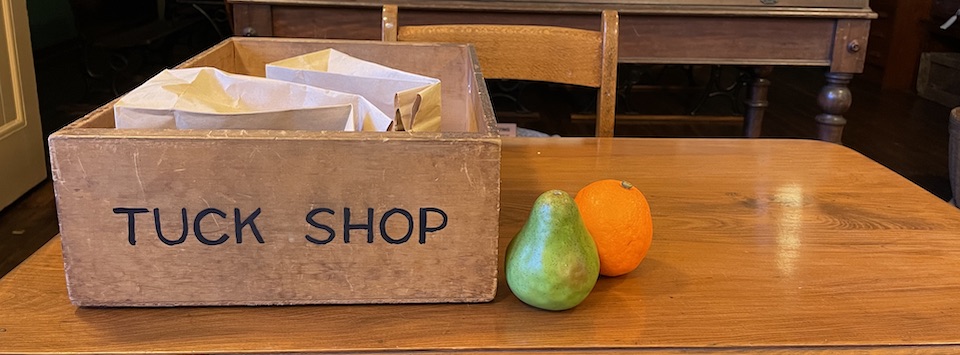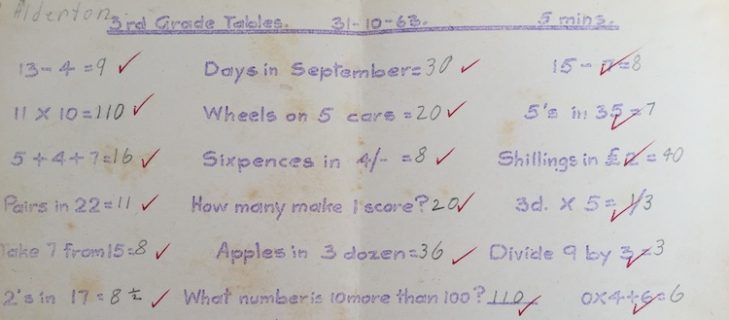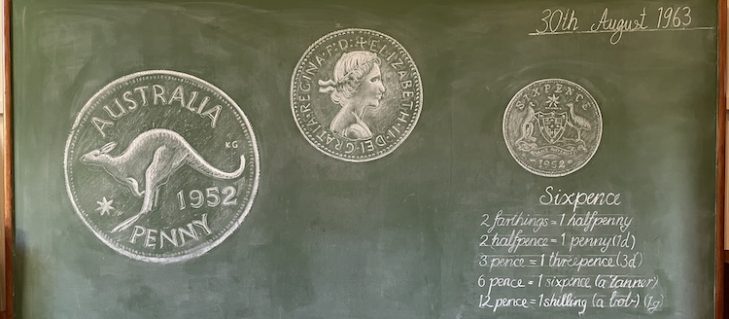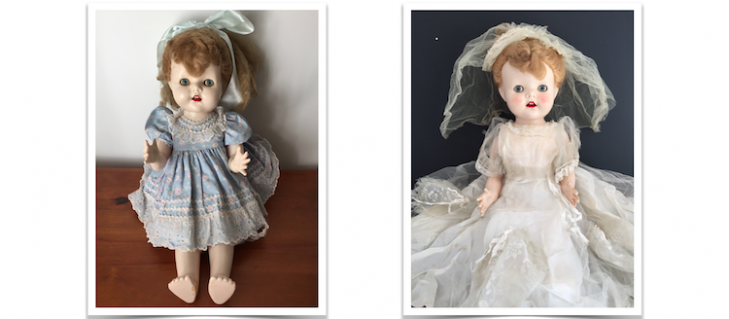1960s special days
Dianne Robertson and Robyn Minard attended North Ryde Public School in the 1950s and 1960s. In this oral history they recount their memories of special days at school.
Special days
The truth of the matter is that everyday we attended school was special. However, there were days that appeared to be more exciting than others whether they occurred on a weekly basis, monthly or just whenever.
Once a week
Pie day
Each Friday we had the opportunity to order a fresh hot pie from the local cake shop. It was a nice change from our sandwiches wrapped in greaseproof paper.
All we needed to do was to bring a brown paper bag from home with our name and class written clearly on the front, place a one shilling coin inside the bag and place the paper bag into a wooden box when we arrived at school.
Two students from the class were given the task of taking the box full of orders across the road to the neighbouring cake shop. The students would repeat the process just prior to lunch and return with the box full of hot pies.
We can still remember the aroma of the hot meat as it wafted through the paper bag.
Test day
We can’t really admit that our Friday test days were that exciting, but their consistency put us in good stead as we progressed through primary school.
In absolute silence we were handed a small test paper which had been handwritten by the teacher and duplicated.
Having only five minutes to complete the tables test our answers had to be recorded very quickly so we needed a thorough knowledge of our times tables, addition, subtraction, division and multiplication. That knowledge had to be ready in our heads as there was no time to use paper and pencil to work out the answer!
You could have heard a penny drop in those silent five minutes.
Dianne’s 3rd Grade arithmetic test, 18 of the 25 questions that were completed in 5 minutes, 1963 (Personal collection of D Robertson)
Bank day
Each week two representatives from the local Commonwealth Savings Bank would visit the school. It was an initiative from the bank to encourage students to save for their future.
After setting up a table in the playground as a makeshift bank, we were given time out of class to go and deposit our money. Often we would have to wait in a queue holding tightly onto our bank deposit book in one hand and our coins in the other, but it was worth the wait.
It was so satisfying to see the new deposit handwritten into our bank books and our savings growing and growing.
Finally, with a stamp placed in our bank book, and on the back of our hand, we’d return to the classroom dreaming of how best to use those funds when we grew up.
The Australian currency in the early 1960s was pounds, shillings and pence. In 1966 Australia switched to decimal currency. The chalk illustrations on the blackboard show a penny, halfpenny and sixpence.
Once a year
Gould League membership
Protecting our environment continues to be a major part of our education. Back in the 1960s we were encouraged to become a member of a special group known as the NSW Gould League of Bird Lovers. Founded in 1909, the sole purpose was to educate for the protection of Australian birds.
By paying a small fee for our membership, we not only received a certificate, a book and a wall chart on Australian birdlife, but also a prized Gould League badge. Bearing a beautiful bird on the front of it, each year’s badge featured a different bird. We never knew which one we would get to add to our collection. We pinned our badges to the collar of our uniform and wore them with pride.
Dolly day
It was a very special occasion when we were permitted to bring our favourite doll to school as part of the Dolly Day competition. Gathering early in the playground, we would nurse our dolls comparing and commenting on their unique outfits ranging from bridal gowns to smart powder blue flower dresses.
However, one doll stood out from the rest as it was dressed in a tiny brown school uniform. We knew who owned that doll as it was our eldest sister, and we knew who sewed that tiny uniform as it was our wonderful mum. Can you guess who won?
Robyn and Dianne’s favourite dolls were proudly displayed on the annual Dolly Day at school in the 1960s. They are made of a hard plastic and have eyes that blink. (Personal collections of R Minard and D Robertson)
Immunisation and health check
Having a surname starting with a capital ‘A’ has its advantages and disadvantages. At school we were often asked to line up and it was usually a ‘first in best dressed ‘arrangement as to who became the leader. However, when we lined up for our immunisation and health checks, we did so in alphabetical order, therefore my sisters and I were always at the front of the line. Our surname started with ‘A’.
We were the first ones to receive a needle in the arm, the first ones to have a cold stethoscope held to our chest and the first ones to have a torch light shone in our eyes and ears!
On a positive note, it always felt good as we walked away from the makeshift clinic, along the length of the verandah, smiling with relief at our friends who waited nervously and silently in the line.
Questions and activities for students
- What special days do you look forward to each week and each year at your school?
- What aspects of school and life have changed since the 1960s told or shown in this story?
Activity
- List special days you have once a week and once a year. Put an ‘S’ besides any that are similar and a ‘D’ beside those that are different.
- Pretend you are a grandparent. Tell your grandchild about a favourite special day at school




